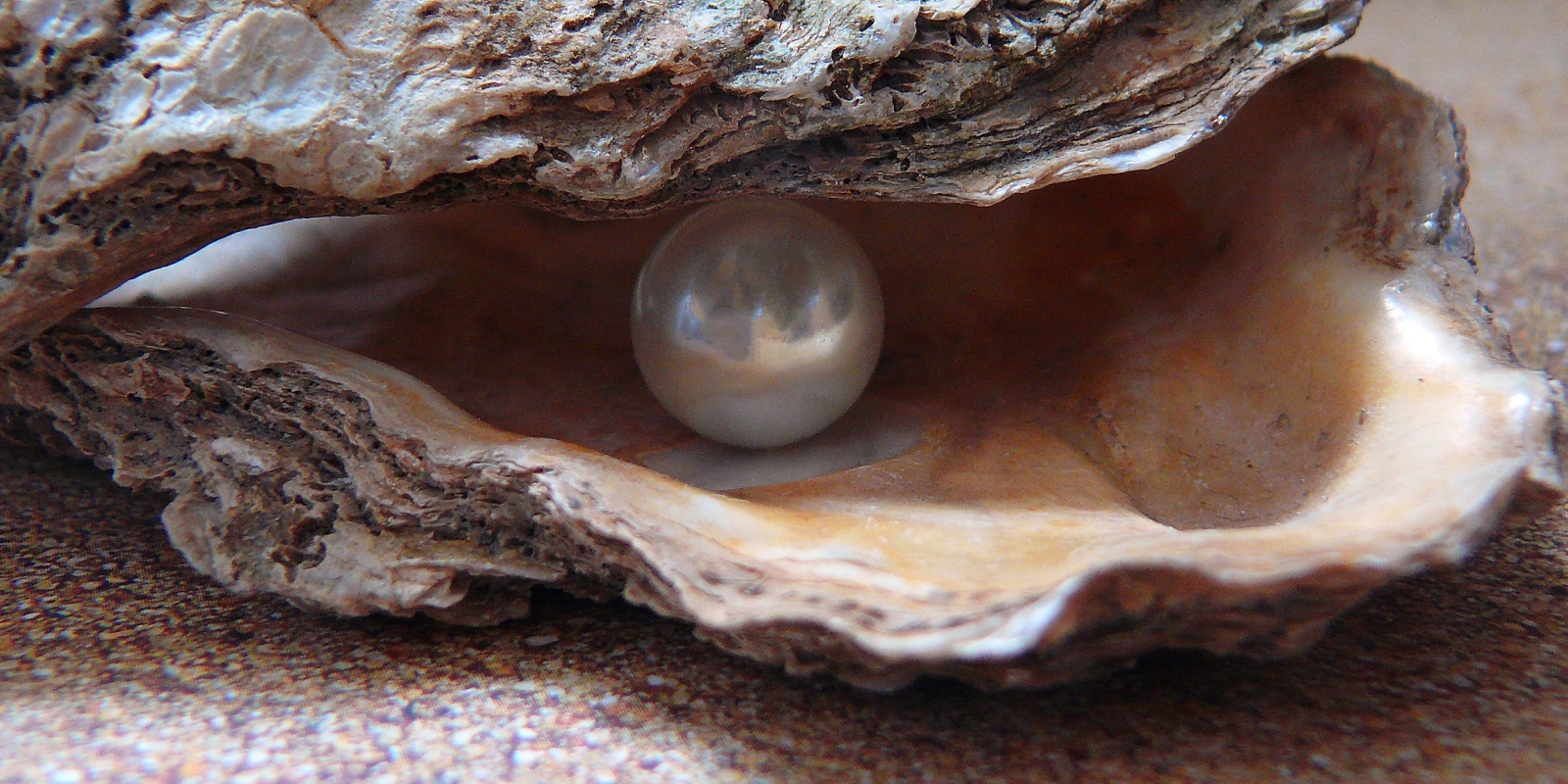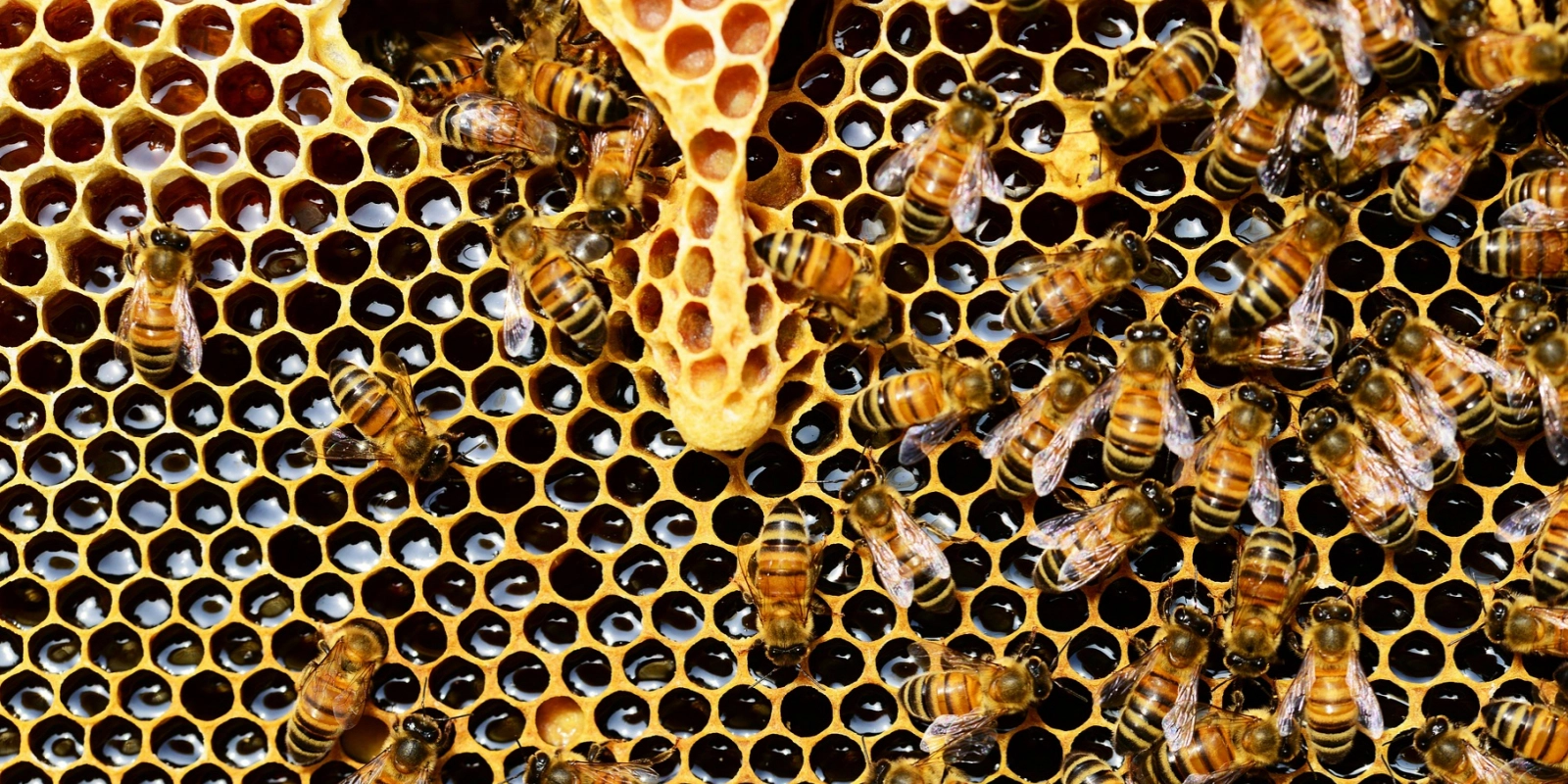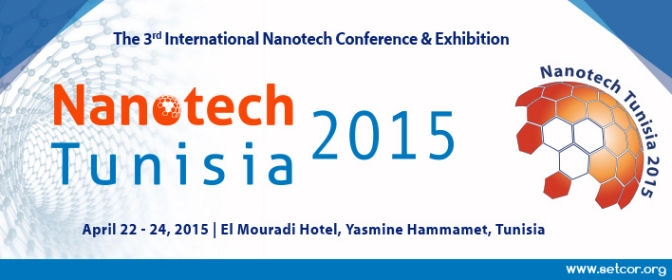Nanotech Tunisia 2015 International Conference & Exhibition, April 22 - 24, 2015, Yasmine Hammamet, Tunisia
As an conference attendee you can start your participation in innovation management right here. Offer project participation, knowledge, equipment usage, results or IP etc. to find companies or partners looking for you. Get our SILVER package for free or our GOLD package with 30% off!
Find out the details ...
Introduction:
This event will gather the global nanotechnology communities, including researchers, industrials, policymakers and investors. Internationally renowned speakers will offer the attendees exceptional opportunities. The latest trends and discoveries in Nanoscience and Nanotechnology.
It is an excellent event for students to meet and discuss with lead researchers. The conference provides an unprecedented opportunity to discover innovation and new business opportunities. It’s among the most important events in the region and it’s opened to the participation of private companies. It’s a unique venue for companies to promote equipment and technology
The conference will include plenary speeches, invited presentations, contributed presentations and poster presentations. Also, the contents are enriched by networking coffee breaks and lunches.
In parallel to the conference sessions, nanotechnology and nanoscience workshop will be organized and certificates will be issued to participants. This Nanotechnology workshop consists in a series of short courses that will educate participants in a range of technologies through a 2 days Intensive Program. This course focuses on all the essential aspects in this rapidly growing field.
Special session on "Science for Peace and Security programm (SPS- NATO)" will be moderated by Prof. Adnane Abdelghani and Prof. Eduard Llobet.
The Nanotech Tunisia 2015 offers you the opportunity to publish your research work as conference proceedings paper (8 pages) in a special issue under an ISBN number within IOP Publishing Proceeding journals indexed in Scopus, EI Compendex, Inspec, etc.
Selected papers will be published in one of the following journals:
1. Journal of Nanomedicine & Nanotechnology : papers (15-16 pages maximum including figures, tables, references, etc...) have to be submitted before the 15th of March 2015. Authors will receive the notification of acceptance at the end of April 2015. Accepted papers will be published by the end of May 2015.
2. International Journal of Nanotechnology (impact factor= 1.2) : Papers (11 pages maximum) have to be submitted before the 20th of April 2015. The accepted papers will be published in January 2016.
Conference Chairs
Prof. Adnane Abdelghani
National Institute of Applied Science and Technology, Tunis-Tunisia
Prof. Axel Lorke
Faculty of Physics and CeNIDE, University of Duisburg-Essen-Germany
Prof. Erich Sackmann
Institute of Molecular and Cellular Biophysics, Technische Universitat Munchen- Germany
Prof. Larbi Sfaxi
Sousse University, Tunisia
Keynote Speakers
Dr. Sir Harold W. Kroto (1996 Nobel Prize in Chemistry) - TO BE CONFIRMED
Professor, Florida State University, USA
Prof. Erich Sackmann
Institute of Molecular and Cellular Biophysics, Technische Universitat Munchen- Germany
Prof. Kenneth A. Dawson
Professor of Physical Chemistry, University College Dublin, Ireland
Prof. Eduard Llobet
URV University, Tarragona , Spain
Dr. Alexander Mozalev
Senior Researcher, Central European Institute of Technology (CEITEC), Brno University of Technology (BUT), Brno, Czech Republic, EU
Prof. Joydeep Dutta
Chair in Nanotechnology Water Research Center ,Sultan Qaboos University, Oman
Dr. Edreese Alsharaeh
Asso. Professor of Chemistry and Head of the Chemistry Deopartment. Alfaisal University, Kingdom of Saudi Arabia
Local Technical Commitee
- Prof. Adnane Abdelghani, Institut National des Sciences Appliquées et de Technologie, Tunisia
- Prof. Larbi Sfaxi, Ecole Supérieure des Sciences et de Technologie de Hammam Sousse, Tunisia
- Prof. Samir Hamza, National Institute of Applied Science and Technology, Tunisia
- Prof. Samia Charfi Kaddour, Faculté des Sciences de Tunis, Tunisia
- Prof. Sihem Jaziri, Faculté des Sciences de Bizerte, Tunisia
- Prof. Ismail Trabelsi, CERT-Borj Cedria, Tunisia
- Prof. Walid Touayar, Institut National des Sciences Appliquées et de Technologies, Tunisia
- Prof. Rachida Sridi, Ecole Supérieure des Sciences et de Technologie de Hammam Sousse, Tunisia
- Prof. Samia Nassrallah, Institut Supérieur des Sciences Appliquées et de Technologie, Sousse, Tunisia
- Prof. Mhamed Ali Maaref, Institut National des Sciences Appliquées et de Technologie, Tunisia
- Prof. Slim benSaoud, Institut National des Sciences Appliquées et de Technologie, Tunisia
- Prof. Nizar Bel-Lakhal, Institut National des Sciences Appliquées et de Technologie, Tunisia
- Prof. Adel Kalboussi, Faculté des Sciences de Monastir, Tunisia
- Prof. Leila Smiri, Faculté des Sciences de Bizerte, Tunisia
- Prof. Sonia Hajri, National Institute of Applied Science and Technology, Tunisia
- Prof. Mounir Samet, National School of Engineering of Sfax, Tunisia
- Prof. Mourad Loulou, National School of Engineering of Sfax, Tunisia
- Prof. Nourredine Meskini, Faculty of Science of Tunis, Tunisia
- Prof. Ibrahim Bseiss, Technopole Borj Cedria, Tunisia
- Prof. Sami Fattouche, Institut National des Sciences Appliquées et de Technologie, Tunisia
- Dr. Imen Hafaid, Institut National des Sciences Appliquées et de Technologie, Tunisia
- Dr. Sami Ameur, Ecole Supérieur de Chatt-Meriam, Tunisia
- Dr. Saloua Helali, Technopole-Borj Cedria, Tunisia
- Dr. Hamdi Baccar, Institut Supérieur d'Informatique du Kef, Tunisia
- Dr. Nadra Bohli, Assistant Professor at The National Institute of Applied Science and Technology, Tunisia
International Advisory Board
- Prof. E. Sackmann, LMU-Muenchen, Germany
- Prof. Eduard LLOBET, Tarragona University, Spain
- Prof. Ahmed A. Al-Ghamdi, Deanship of Scientific Research King Abdulaziz University (KAU),Jeddah, Kingdom of Saudi Arabia
- Prof. Laurence Mora, University Paris 13, France
- Prof. Nicolas De Rooij, IMT-Neuchatel, Switzerland
- Dr. Alexander Mozalev, BRNO University of Technology, Tchec Republic
- Prof. S. Sahli, Faculté des Sciences de la Technologie, Université Constantine 1, Algeria
- Prof. Axel Lorke, Universität Duisburg-Essen, Germany
- Dr. Ahmed S. G. Khalil, Egypt Nanotechnology Research Center, Giza, Egypt
- Dr. Rami Ghannam, Egypt Nanotechnology Research Center, Giza, Egypt
- Prof. Boumediene Benyoucef,,Université Abou - Bakr Belkaïd, B.P. 119, Tlemcen, Algeria
- Prof. Majda Sakkal, Université Djillali Liabes, Sidi bel Abbés, Algeria
- Prof. Ahmed Galal, Cairo University, Egypt
- Dr. Malika Ardhaoui, Researcher - University College Dublin, Ireland / Chimie-Paritech, France
- Prof Taleb H.Ibrahim, Professor - American University of Sharjah, UAE
- Dr Khaled Saoud, Assistant Professor of physics, Virginia Commonwealth University in Qatar, Qatar
- Prof Joydeep Dutta, Chair in Nanotechnology Water Research Center ,Sultan Qaboos University, Oman
- Prof. Osman Adiguzel, Professor - Firat University, Elazig, Turkey
- Dr. Omar Alhartomy, Associate Professor, Dean of Faculty of Science, University of Tabuk, Kingdom of Saudi Arabia
- Dr. Barry Twomey, Medical Program Manager, EnBio, Ireland
- Dr. Maria G. Katsikogianni, Research Fellow - University of leeds, UK
- Dr. Charles Nwankire, Research Fellow - Harvard University, USA
- Dr. Ahmed Chebbi, Researcher - University College Dublin, Ireland
- Dr. Muhammad Awais, Assistant Professor - King Abdulaziz University, Kingdom of Saudi Arabia
- Dr. Qasim Murtaza, Assistant professor - Delhi Technological University, India
- Dr. Jerome Pulpytel, Lecturer - University of Pierre and Marie Curie, France
- Dr. Ajay, Associate Professor - IIT Roorkee, India
- Prof. Mohamed Yosri Hassaan, Professor - Al-Azhar University, Egypt
- Prof. Mohamed M. El-Desoky, Professor - Suez Canal University, Egypt
- Dr Ahmad Ayesh, Assistant Professor - United Arab Emirates University Al-Ain, UAE
- Prof. Barhdadi Abdelfattah, Professor - Ecole Normale Supérieure, University Med-V, Morocco
- Dr Abdulrahman Albadri, King Abdulaziz city for science and technology, Kingdom of Saudi Arabia
- Prof. Mimoun Zazoui, Professor - Faculty of science and Technology, Mohammedia, Morocco
- Dr. Mohamed Bououdina, College of Science Central Labs, University of Bahrain, Bahrain
- Prof. Idress Hamad Attitalla, Faculty of Science, Omar Al-Mukhatr University, Libya
- Prof. Izeddine Zorkani, Professor- Faculty of science Dhar Mahraz Fès, Morocco
- Dr Palani Balaya, National University of Singapore, Singapore
- Prof. Mostafa El-Gammal, Faculty of Engineering, University of Alexandria, Egypt
- Dr. Vahid Jabbari, Ph.D, Chemistry Department, The University of Texas at El Paso (UTEP), Texas, USA
Conference Topics
Advanced Materials
- Nanoparticles Synthesis and applications
- Nanocomposites / Bionanocomposites Materials
- Nanofluids
- Nanostructured / nanoporous Materials and devices
- Nanostructured coatings, surfaces and membranes
- Carbon Nanostructures and devices
- Graphene
- Polymer Nanotechnology
- Soft Nanotechnology and Colloids
Fabrication, Characterization and Tools
- Synthesis of Nanomaterials
- Sustainable Nanomanufacturing
- Nanoscale Materials Characterization
- Modeling and Simulation at the Nanoscale
Nanoscale Electronics
- Nano Electronics and Photonics
- Organic and Flexible Electronics
- Green Electronics
- MEMS and NEMS Devices and Applications
- Sensors and Systems
- Nanofluidics
Nanotech in Life Sciences and Medicine
- Bionanomaterials and Tissues Engineering
- Biosensors, Diagnostics and Imaging
- Materials for Drug and Gene Delivery
- Biomarkers and Nanoparticles
- Cancer Diagnostics, Imaging and Treatment
- Drug Delivery and Therapeutics
- Cancer Nanotechnology
- Nano Robots
- DNA nanotechnology
- Nanotoxicity
Energy and Environment
- Nanomatrials for Clean and Sustainable Technology
- Nanotechnology for Solar Energy Collection and Conversion
- Energy Storage and Novel Generation
- Nanotech for Oil and Gas
- NanoNuclear Materials
- Fuels Applications
- Renewable Energy Technologies
- Bio Sources for Materials and Fuels
- Green Chemistry and Materials
- Water Technologies
- Smart Grid
Nanotechnology safety
- NanoToxicology
- Risk assessment and management
- Measurement of health risk
- Exposure scenarios
- Regulation and ethical impacts
Nano Applications
- Medical and Pharmaceutical
- Food Technology
- Electronics and Communication
- Catalysis
- Military and Defence
- Aeropspace and Vehicle Manufacturers
- Energy and Environment
- Manufacturing
- Construction
- Textiles
Prof. Adnane Abdelghani
National Institute of Applied Science and Technology, Tunis-Tunisia
Prof. Adnane Abdelghani is a Full Professor in the National Institute of Applied Science and Technology (INSAT, Tunisia). He obtained the master degrees in "Microelectronics Devices" at the INSA of Lyon in 1994, then a Ph.D from Ecole Centrale of Lyon (France) in 1997. He was a post-doc researcher in Germany in the field of biophysics (1997-2000). He obtained a Habilitation in Physics in 2004 (Tunisia) and a Habilitation in 2009 at the Ecole Normale Supérieure de Cachan (France). He organized in Tunisia two International Conferences in the Field of Nanotechnology (2009 and 2012) with the Alexander Von Humboldt Foundation (Germany). He is now the leader of research group working mainly on gas sensors based on Functionalized carbon nanotubes (metallic oxides, polymers) and on the development of interdigitated gold microelectrodes integrated in microfluidic cell for bacteria analysis in biologic medium. He published more than 80 papers in International Journals. He edited two chapters book in the field of sensors.
Dr. Edreese Alsharaeh
Asso. Professor of Chemistry and Head of the Chemistry Deopartment. Alfaisal University, Kingdom of Saudi Arabia
Dr. Edreese Alsharaeh earned his B. Sc. in Chemistry in 1993 from Jordan University of Science and Technology, and his M. Sc. in Organic Chemistry on 1997 From Tennessee State University (USA). In 2004 he received his Ph.D. in Physical Chemistry from Virginia Commonwealth University, USA. He had intense teaching and industrial experience, as well as, a number of scholarly achievements including US patent . He have had journals published in a major referee journal. (American Chemical Society Publications) and numerous presentations in ACS Meeting nationally and regionally. He worked as Senior Scientist in The R&D Laboratory of Vintage Pharmaceutical Company. Then he accepted the position as assistant professor in chemistry at George Mason University and Gulf University for Sciences and Technology . His research interest in the general areas of Nanomaterials and polymer nanocomposites materials containing graphene nansheets and metal nanoparticles. The major goal is to gain insights as to how the properties of matter evolve as the size of a material system ranges from molecular to macroscopic dimensions.
Prof. Kenneth A. Dawson
Professor of Physical Chemistry, University College Dublin, Ireland
Prof. Dawson is Director of the Centre for BioNano Interactions (CBNI), which is the National platform for excellence in the interaction of nanoparticles with living systems. He is also a lead investigator of the bionanoscience activities in University College Dublin, and Chair of Physical Chemistry.
His professional roles include participation in the EMEA Nanomedicines Expert Group, membership of the Scientific Committee on Emerging and Newly Identified Health Risks (SCENIHR), participation in the OECD and ISO working groups on standards for Nanotechnology, Chairing the International Alliance for NanoEHS Harmonoisation and co-ordinating several large research projects in the area of nanosafety and nanomedicine, including the EU Research Infrastructure for nanosafety assessment (QualityNano).
He is currently Editor of Current Opinion in Colloid Science, Senior Editor of Physica, Associate Editor of Journal of Nanoparticle Research and former President of the European Colloid and Interface Society.
He has several years of experience of leading international research teams at the interface between materials and biology, including one of the first publications applying transcriptomics to materials (PNAS, 2003, 100, 6331). His work has focused on the biomolecule corona that surrounds nanoparticles in biological milieu and how this mediates nanoparticle interactions with living systems. The long-term goal of his research is the development of a rational framework to understand the interactions of nanoparticles with living systems.
Prof. Joydeep Dutta
Chair in Nanotechnology Water Research Center ,Sultan Qaboos University, Oman
Prof. Joydeep Dutta is currently Vice President (Academic Affairs), Director of the Center of Excellence in Nanotechnology and a professor in Nanotechnology at the Asian Institute of Technology (AIT), Bangkok, Thailand, whose faculty he joined in April 2003. He completed his Ph.D in 1990 from the Indian Association for the Cultivation of Science, India (Calcutta University) followed by a post-doctoral position at the Electrotechnical Laboratory (ETL, Japan) and at Ecole Polytechnique (France) before moving to the Swiss Federal Institute of Technology (EPFL), Lausanne, Switzerland until 2003. His broad research interests include nanomaterials in nanotechnology, self-organization, Microelectronic devices, nanoparticles and its applications in electronics and biology. He is a Fellow of the Institute of Nanotechnology (IoN) and the Society of Nanoscience and Nanotechnology (SNN), Senior Member of the Institute of Electrical and Electronics Engineers (IEEE), USA, founding member of the Thailand Nanotechnology Society, and member of several professional bodies including Materials Research Society (MRS), USA, American Association for Advancement of Science (AAAS), USA, Society of Industry Leaders, USA, Gerson Lehrman Group Council, USA, Asia-Pacific Nanotechnology Forum (APNF), Australia, The NanoTechnology Group Inc., USA, UK Futurists Network, United Kingdom, The Science Advisory Board, US amongst others. He has served to review projects of various scientific organizations of different countries and has organized a few international conferences and served as a member in several others.
Prof. Dutta is an award winning author (Choice award for Outstanding Academic title of 2010 from American Library Association) of the book “Fundamentals of Nanotechnology”. He has also written two other text books entitled “Introduction to Nanoscience” and “Introduction to Nanoscience and Nanotechnology” (CRC Press of Taylor and Francis Group LLC). Prof. Dutta has over 200 research publications, with more than 950 citations(h-index 19), 9 chapters in Science & Technology reference books, 5 patents (9 ongoing applications) and has delivered over 60 invited and keynote lectures.
He is in the editorial board of the Journal of Bionanoscience (American Scientific Publishers), Nanoscience & Nanotechnology-ASIA (Bentham) and regularly referees articles in international journals.
Dr. Sir Harold W. Kroto
Professor, Florida State University, USA
Dr. Sir Harold "Harry" W. Kroto, one of the co-recipients of the 1996 Nobel Prize in Chemistry, now teaches at FSU. Dr. Kroto is a Francis Eppes Professor in the Department of Chemistry and Biochemistry.
Kroto gives a highly popular series of public lectures, visiting area schools to promote science education and has taught a graduate class on interstellar chemistry. He comes to FSU from the University of Sussex in England, where he taught for 37 years.
Kroto said his move to FSU allows him to "not only open up some new research avenues" but "also maintain the considerable momentum that (his research has) built up over the past 10 years in my international educational outreach work." Dr. Kroto, through the Vega Trust website, aims to create a broadcast platform for the science, engineering and technology (SET) communities, so enabling them to communicate on all aspects of their fields of expertise using the exciting new TV and Internet opportunities.
An ardent advocate for science education, Kroto devotes much of his time and energy to promoting careers in science among young people. "He'll be a very visible guy" on campus, said Alan G. Marshall, a professor of chemistry, in an interview with Chemical & Engineering News. "The plan is for him to give at least one lecture to every freshman at Florida State during their career, so they'll get a chance to see him."
Kroto's Nobel Prize was based on his co-discovery of buckminsterfullerene, a form of pure carbon better known as "buckyballs." The extraordinary molecule consists of 60 carbon atoms arranged as a spheroid, in a pattern exactly matching the stitching on soccer balls. The configuration reminded Kroto of the geodesic domes designed by the late inventor/architect Buckminster Fuller, hence the name "buckminsterfullerines."
Kroto is the second Nobelist (with J. Robert Schrieffer of the National Magnetic Field Laboratory) now serving on the FSU faculty. Others to serve at FSU were Konrad Bloch, human sciences; James Buchanan, economics; Paul Dirac, physics; and Robert Sanderson Mulliken, chemical physics.
In 2001, Kroto won the Royal Society's prestigious Michael Faraday Award. The award is given annually to a scientist who has done the most to further public communication of science, engineering or technology in the United Kingdom.
Prof. Eduard Llobet
URV University, Tarragona , Spain
Prof. Eduard Llobet is the director of the research center in Materials Engineering and micro / nano systems (EMAS), which aims to transfer and training in the field of new materials and micro / nano systems, especially those related development of new technologies for application in the fields of sustainable chemistry, environment, health, energy and communications.
After graduating in Telecom Engineering (UPC), since 1993 he is professor in the Department of Electronic Engineering, Universitat Rovira i Virgili. He obtained his doctorate degree from the UPC in 1997.
Prof. Llobet has published over 163 articles in journals, he is co-author of 8 chapters of international books and has presented more than 200 contributions in international conferences.
Prof. Axel Lorke
Faculty of Physics and CeNIDE, University of Duisburg-Essen-Germany
Prof. Axel Lorke received his PhD in Experimental Physics in 1991 from the Ludwig-Maximilians-Universitat (LMU) Munich. He worked as a PostDoc at the University of Tokyo, the University of California, Santa Barbara, and the LMU Munich, where he also received his ‘Habilitation’. Since the year 2000 he has been a Full Professor (C4) for Experimental Physics at the University of Duisburg-Essen. His work focuses on the electronic and optical properties nano-structures and low-dimensional semiconductors. Starting in 2004 he has been coordinator of the Collaborative Research Centre ‘Nanoparticles from the Gas Phase’,funded by the German Research Foundation. He is co-founder and presently Director of the ‘Center for NanoIntegration Duisburg-Essen’ (CeNIDE), which represents about 35 research groups working in the nanosciences with a total of about 200 scientists.
Lorke is author and co-author of 4 patents and 125 refereed publications with a total of about 4000 citations.
Dr. Alexander Mozalev
Senior Researcher, Central European Institute of Technology (CEITEC), Brno University of Technology (BUT), Brno, Czech Republic, EU
Dr Alexander Mozalev was born in Minsk, Belarus (USSR) in 1962. He received the BSc in Engineering from the Minsk Radioengineering Institute (MRTI) in 1985, the MSc and PhD (CSc) in Engineering (Solid State Electronics) from the Belarusian State University of Informatics and Radioelectronics (BSUIR) in 1990 and 1993 respectively.
Following graduation, he was employed by MRTI (1985) and then BSUIR (1995) where he started interested in applied electrochemistry, mostly for forming nanoporous anodic films on aluminium and nanostructured oxide films on a range of transition metals. He was one of the Soviet scientists who discovered the phenomenon of field-assisted growth of self-organized metal-oxide nanostructures resulting from smart anodizing of thin-film metal bilayers (1984), published the first report disclosing the method concept (1986) and has contributed significantly to the conception development till now. During his 25-year employment at MRTI-BSUIR, Dr Mozalev was involved in a variety of investigations and developed a number of advanced electrochemistry-based technologies for electronic passives, multilevel interconnections of CMOS VLSI, self-assembled nano-cathodes for FED displays, LED structures based on porous alumina with embedded organic luminophors, alumina membranes and separators for Li-metal batteries, nanostructured active layers for micromachined gas sensors.
Since June 2011, Dr Mozalev has been employed as a senior researcher at Brno University of Technology (BUT) and joined the Central European Institute of Technology (CEITEC) in the Czech Republic where he is currently leading a group formed to develop next generation solid state devices via electrochemistry-based approaches. In this capacity, he has been involved in the formation and investigation self-organized 3-D nanofilms consisting of metals, semiconductors and mixtures via a blend of electrochemical and physical deposition techniques for application to sensors, hydrogen generators, solar cells, electric capacitors and nonvolatile memory cells.
Dr Mozalev has been a fellow and invited professor at the leading anodizing research laboratories in Japan, Germany, Austria, Spain and Czech Republic thanks to the awards of STA of Japan, JSPS (Japanese Society for the Promotion of Science), AGAUR of Generalitat de Catalunya, DFG, The Max-Planck Society, Marie Curie Actions, SoMoPro program and GACR.
Dr Mozalev has been a member of the International Society of Electrochemistry (ISE), the Surface Finishing Society of Japan and the Anodizing Research Society of Japan (ARS). He has served as a reviewer for the European Science Foundation and for 17 scientific journals of ACS Publications, RSC Publishing, ECS Publishing, Elsevier, Wiley-VCH and IOP Publishing (63 reviews so far made). He was a committee member of 6 international conferences.
Dr Mozalev is the author of 65 papers, reviews and proceedings, 16 R&D reports, over 140 contributions to international conferences including 15 invited lectures and courses, and holds 7 patents and invention certificates (USSR, Japan, Belarus).
Prof. Erich Sackmann
Institute of Molecular and Cellular Biophysics, Technische Universitat Munchen- Germany
Prof. Erich Sackmann is considered to be the founder of biophysics in Germany. In the German Physical Society, he initiated and established a work group for biophysics. His working area is influenced by numerous interdisciplinary and international co-operations, which also led to three Collaborate Research Centres in the German Research Foundation. In recognition of the groundbreaking results of his research on understanding the dynamics of membranes and biopolymer networks, the mechanical properties of cells as well as cell surface interaction, Erich Sackmann received the Stern-Gerlach Prize of the Germany Physical Society in 2006. Since 2007, he is involved with his current research project “Fundamental Physics” in the Technische Universität München’s Institute for Advanced Study.
Prof. Larbi Sfaxi
Sousse University, Tunisia
Prof. Dr.larbi Sfaxi is a Full Professor in the Graduate School of Sciences and Technology (ESSTHS Tunisia). He obtained the master degrees in "Materials Science" at the University of Paris VI in 1991, then a Ph.D from the same University (France) in 1995. He obtained a Habilitation in Physics in 2002 (Tunisia). In 2007, he was an invited professor at the Institute of Nanotechnology of Lyon (France). His research area is the growth by MBE and the optical and electrical characterization of nanoscale structures. He published more than 70 papers in International Journals.
Go to the Conference Website ...












